


Urbanfruit.ly is a mobile app and peer-to-peer network created during the 1st annual Hack For LA Hackathon in Los Angeles, California, in the Summer of 2013. It won the AT&T Best Overall Hack for Los Angeles App and the 2nd Prize in the Chase Bank Challenge for Best App related to jobs, business, and economic development. The platform empowers urban growers by enabling them to exchange excess harvest, which helps communities and neighborhoods diversify their fresh food surplus, reducing food waste, and creating an online bartering community focused on growing fresh foods. The mission of Urbanfruit.ly is to strengthen civic efforts around equitable food systems and urban agriculture by connecting and sharing resources. In addition, the app aims to address food waste and food insecurity issues in urban areas and promote community engagement, environmental awareness, and local economic growth.
For more information on the inception of Urbanfruit.ly, you can read an article titled "Bartering produce with a mobile app: Boyle Heights resident develops his award-winning idea." The article provides further insights into the development process and the people behind this innovative urban agriculture and food-sharing solution.
video by Participant
As a Co-founder of Urbanfruit.ly, my role was multifaceted and involved various responsibilities that greatly contributed to the platform's success. Here's a summary of my accomplishments in this role:
- I successfully led the procurement of Urbanfruit.ly's initial investors, enabling the platform to launch and test its services in Southern California neighborhoods fully.
- I directed the development of Urbanfruit.ly's iOS and Android apps, crafting a user-friendly peer-to-peer network for urban farmers to exchange excess harvests. This platform facilitated the diversification of fresh food sources, reduced food waste, and established a free online and mobile bartering community for urban agriculture enthusiasts.
- I managed Urbanfruit.ly's community engagement events and discussions, collaborating closely with various stakeholders in urban agriculture, food justice, mobile technology, and government sectors. By partnering with community-based organizations, industry leaders, and government agencies in California, I helped strengthen Urbanfruit.ly's mission and expand its reach within the community.
My leadership and management skills in these areas were vital to the growth and development of Urbanfruit.ly, ultimately contributing to its impact on urban agriculture and equitable food systems in Southern California.

Neighborhood Unitarian Universalist Church is a vibrant, modern, inclusive, liberal religious community with deep roots in Pasadena from 1885. Today this progressive, spiritual community seeks to respond to the needs of our changing world. Unitarian Universalism has its roots in progressive western religions.
As the Social Justice Coordinator for Neighborhood Unitarian Universalist Church, I significantly drove meaningful change within our community. By spearheading various initiatives, I contributed to the growth and impact of social justice actions within the church and beyond. My leadership and dedication to the planning, execution, and marketing of events fostered increased engagement on both local and national levels. By managing congregant-led committees, I empowered individuals to take ownership of their passions and address critical issues.
︎︎︎Here are great examples of congregant-led actions︎︎︎

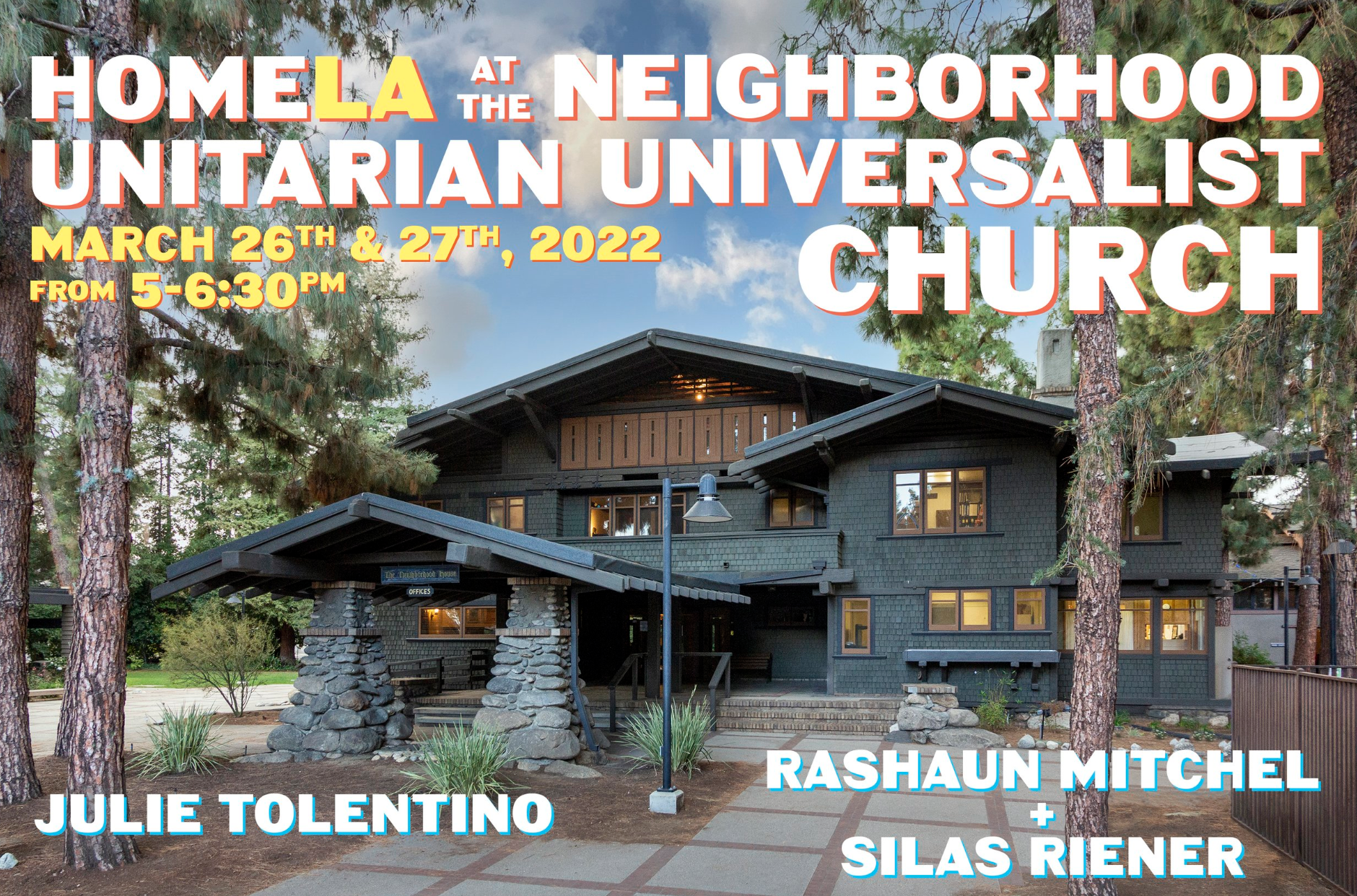
Neighborhood Unitarian Universalist Church, home LA, and Fulcrum Arts received a $45,000 Artist Project Grant from the Mike Kelley Foundation to support the work of artists Julie Tolentino, Rashaun Mitchell, and Silas Riener to produce site-sensitive performances and installations on the Neighborhood Unitarian Universalist Church campus. In addition, the artist worked closely with Neighborhood members, Lay Leaders, and staff to create collaborative work in response to ideas of home as a long-standing progressive spiritual community through an interdisciplinary performance event. The project served an outdoor audience of over 200 people over two evening events in the Spring of 2022.
video by homeLA
The project, led by proactive church members, sought to acknowledge the community's historical burdens, actively addressed its current challenges, and constructed a future grounded in truth, reconciliation, and transformation. Serving as a multi-disciplinary initiative, it brought together local community organizations, distinguished artists, and financial partners to engage congregations in truth and reconciliation, focusing on unraveling historical ties to eugenics and amplifying marginalized voices. Harnessing the power of site-specific performances, creative installations, interactive workshops, and music-led investigations, the project presented a pioneering approach to restorative and transformative justice. Ultimately, aimed to provide an example of healing and change. It offered a roadmap to other religious communities wrestling with their historical legacies while seeking a more equitable, inclusive, and just future.

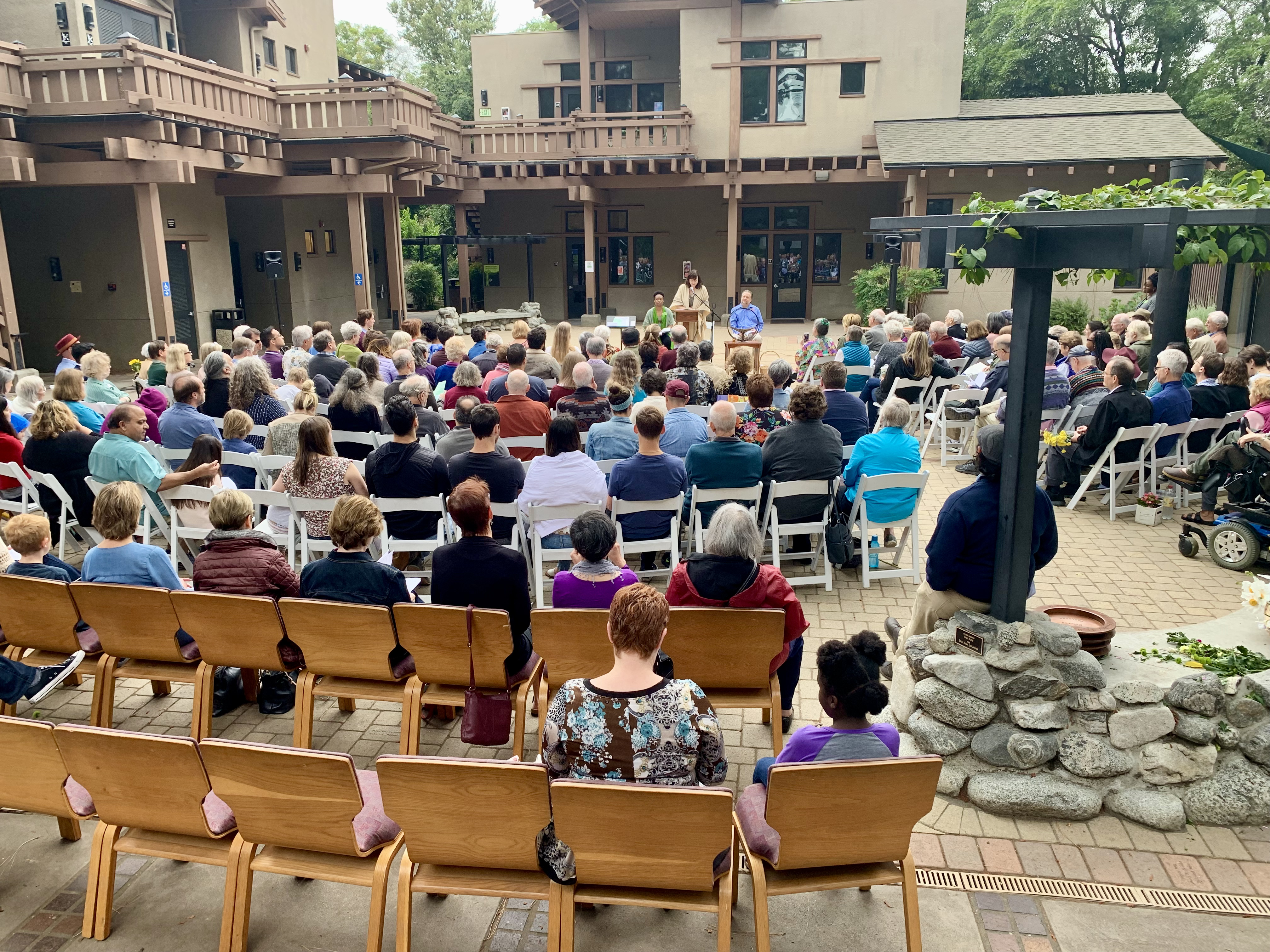
Leading Neighborhood Unitarian Universalist Church's community philanthropy efforts provided me with an incredible opportunity to support social justice-minded nonprofit organizations in creative ways. During my time as the Social Justice Coordinator, I spearheaded three key initiatives:
Racial Equity Endowment: As the Social Justice Coordinator, I had the honor of facilitating the development and establishment of a Racial Equity Endowment. This endowment was initiated by a group of legacy members who contributed $25,000 as seed funding. The primary goal of the endowment is to promote racial justice and equity by ensuring the availability of diverse programming for future generations. By guiding the process and collaborating with stakeholders, I played a key role in creating a lasting resource to support ongoing efforts to advance racial equity within the community.
The Alternative Gift Market (AGM): The AGM is an annual fundraiser that provides an alternative to traditional holiday gift-giving. Instead of purchasing material gifts, individuals can donate to social justice-minded nonprofit organizations in the name of a loved one. The donations received are used to support organizations led by and for people of color, serving communities in Southern California. Through my strategic planning and engagement efforts, I successfully increased the congregation's giving to the AGM by an average of 23% annually. This significant increase in support positively impacted the organizations supported by the AGM.
Share the Plate (STP): Share the Plate was established during the COVID-19 pandemic to address the financial struggles experienced by social justice-minded nonprofit organizations. The congregation committed to donating 100% of each Sunday's offertory to support these organizations. By inspiring and encouraging the congregation to contribute generously, this community increased its annual contribution by 54% in giving to Share the Plate. This initiative played a crucial role in providing much-needed financial support to organizations working tirelessly to serve the communities of Southern California.

**
baseline** before starting my role as
Social Justice Coordinator
These initiatives collectively aimed to address social justice issues, uplift marginalized communities, and create lasting positive change. Through strategic planning, community engagement, and effective communication, I achieved an average annual increase of 38% in congregation participation and financial support for these endeavors. This increased support made a tangible impact on the nonprofit organizations and communities they serve, contributing to a more just and equitable society.


(left to right) Cecilia Elizabeth O’Leary, Ph.D., Luis Sierra Campos, Rev. Christina Shu, Donna Perkins, and Anthony M. Platt, Ph.D.
In 2018, the congregation voted to establish the Truth and Reconciliation Committee after members learned about the troubling past of Dr. Robert A. Millikan, one of the church's co-founders. Millikan, an active promoter of eugenics through his board membership in the Pasadena-based Human Betterment Foundation, had provided a conscious model for the persecution, dehumanization, forced sterilization, and murder of marginalized people by the Nazis during the 1930s and WWII. This promotion was also complicit in the performance of over 20,000 forced and uninformed sterilizations by the State of California and the County of Los Angeles.
A central part of the committee's work was to support Assembly Bill (AB) 1007, The Forced or Involuntary Sterilization Compensation Program, introduced by Assemblymember Wendy Carrillo and California Latinas for Reproductive Justice. AB1007 aimed to provide reparations to approximately 400 living survivors in California. Establishing the Truth and Reconciliation Committee and support for AB 1007 represented important steps in addressing the dark history of eugenics and its impact on marginalized people. By confronting this past and promoting awareness, understanding, and healing within the community, the committee contributed to the ongoing efforts to learn from history and prevent similar occurrences in the future.
To understand the hevy relationship between Dr. Millikan and Neighborhood Unitarian Universalism Church please read the following articles by Clyde Derrick and Donna Perkins:

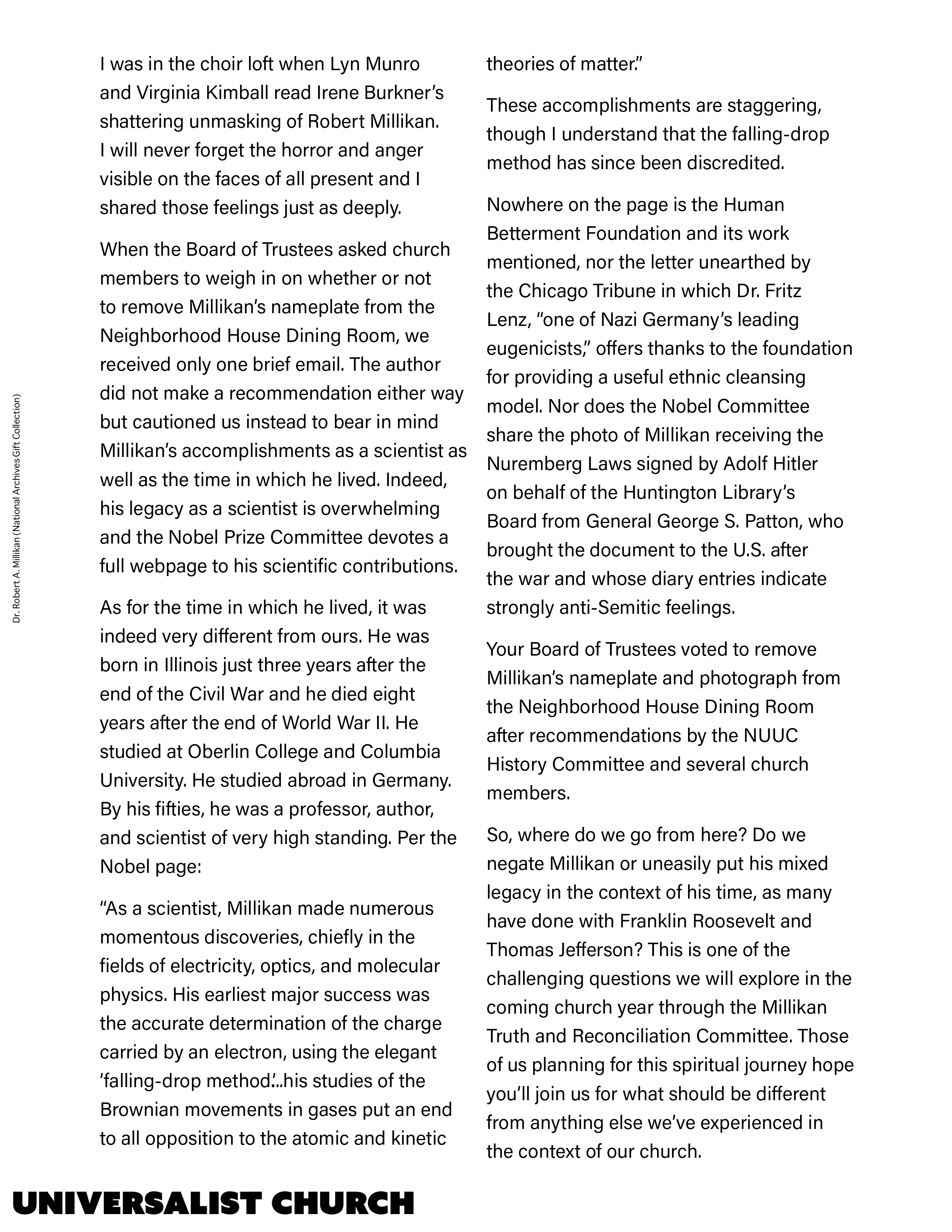

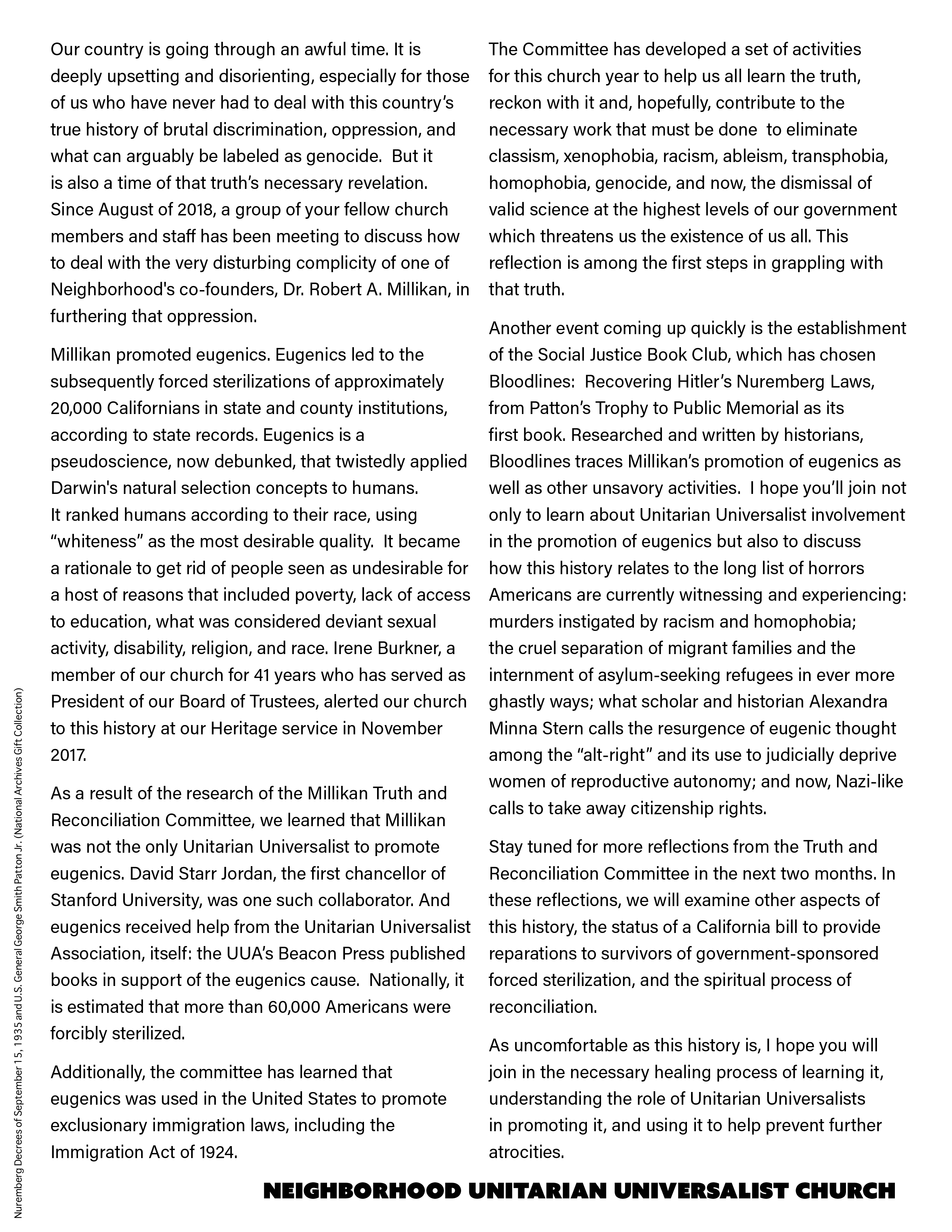

The Environmental Justice Committee, one of the ten social justice-based congregant-led committees, launched a year-long campaign to promote sustainable living and address climate change within the community. The initiative included various programs and activities, such as:
-
Educational workshops on reducing carbon footprint, adopting green practices at home, and understanding the impact of climate change on marginalized communities.
-
A community-wide tree planting drive, where members planted native species in and around the church grounds and local parks.
-
Collaboration with local environmental organizations to advocate for clean energy policies and support efforts to protect natural habitats.
-
Eco-conscious film screening and discussion series, highlighting the importance of environmental stewardship.
- Through this initiative, the Environmental Justice Committee was able to engage the congregation and broader community in meaningful discussions and actions to address the pressing issue of climate change, while fostering a deeper appreciation for our planet and its resources.
The Food Justice in Action lecture series, established by the Committee, aimed to educate Pasadena residents on the importance of adopting new practices and exploring solutions to minimize our daily environmental impact. This critical and alarming issue was explored through the lens of Food Justice.
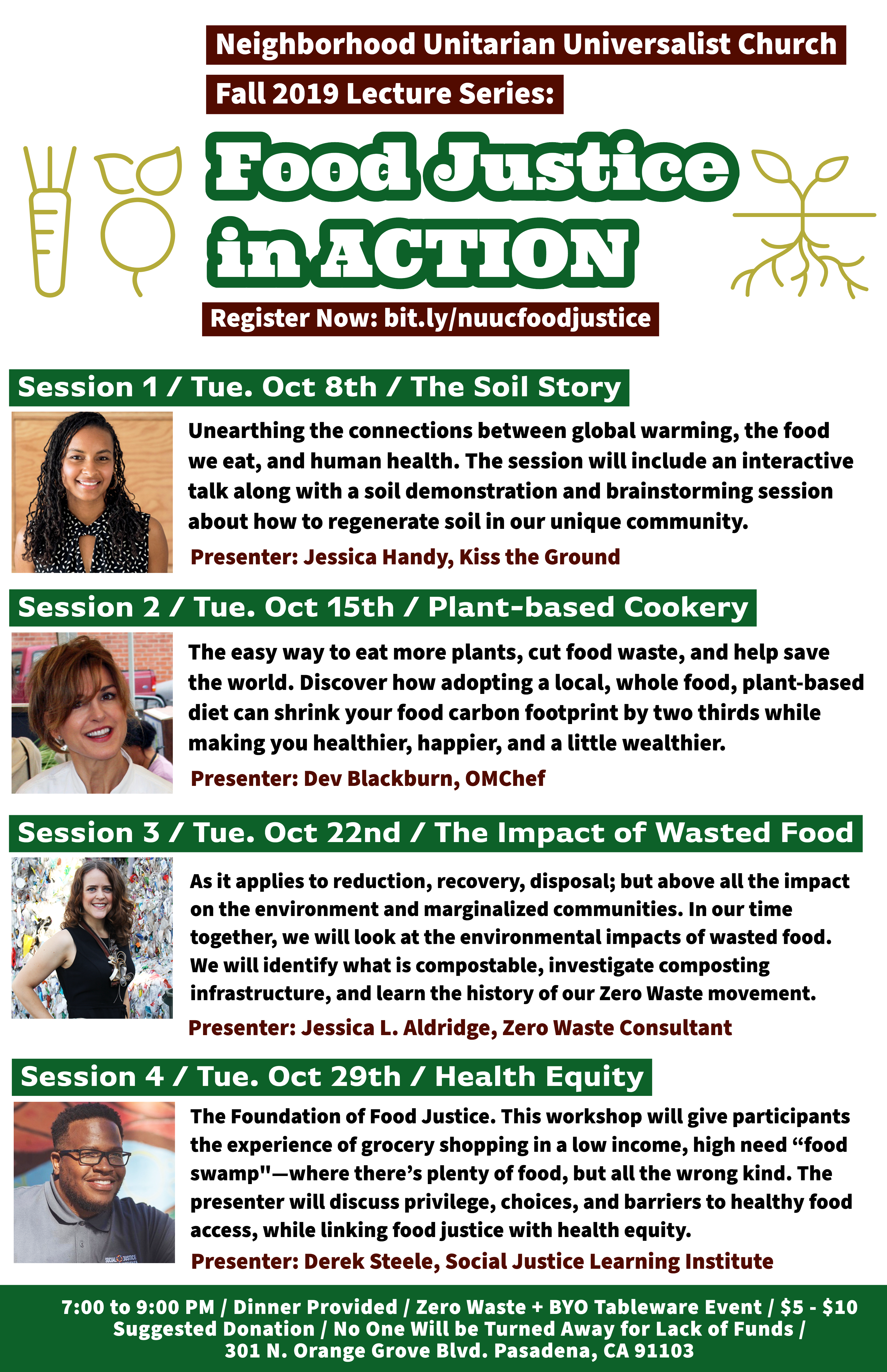
Food Justice is an approach to analyzing the production and distribution of food, ensuring that it is not affected by systemic inequality or oppression based on factors such as race, ethnicity, class, gender, ability, citizenship, religion, or community. It promotes an inclusive, community-led, and participatory food system that does not exploit people, land, animals, or the environment. Food justice emphasizes the importance of healthy food that is fresh, nutritious, affordable, culturally appropriate, and grown locally with care. In a food justice framework, the benefits and risks of where, what, and how food is grown, produced, transported, distributed, accessed, and eaten are shared fairly among all participants in the food system. Practicing food justice leads to a robust local food system, self-reliant communities, and a healthy environment.
Through the Food Justice in Action lecture series, Pasadena residents were encouraged to understand the importance of food justice and work together to create a more equitable and sustainable food system in their community. This, in turn, would lead to a more resilient community and a healthier environment for all.
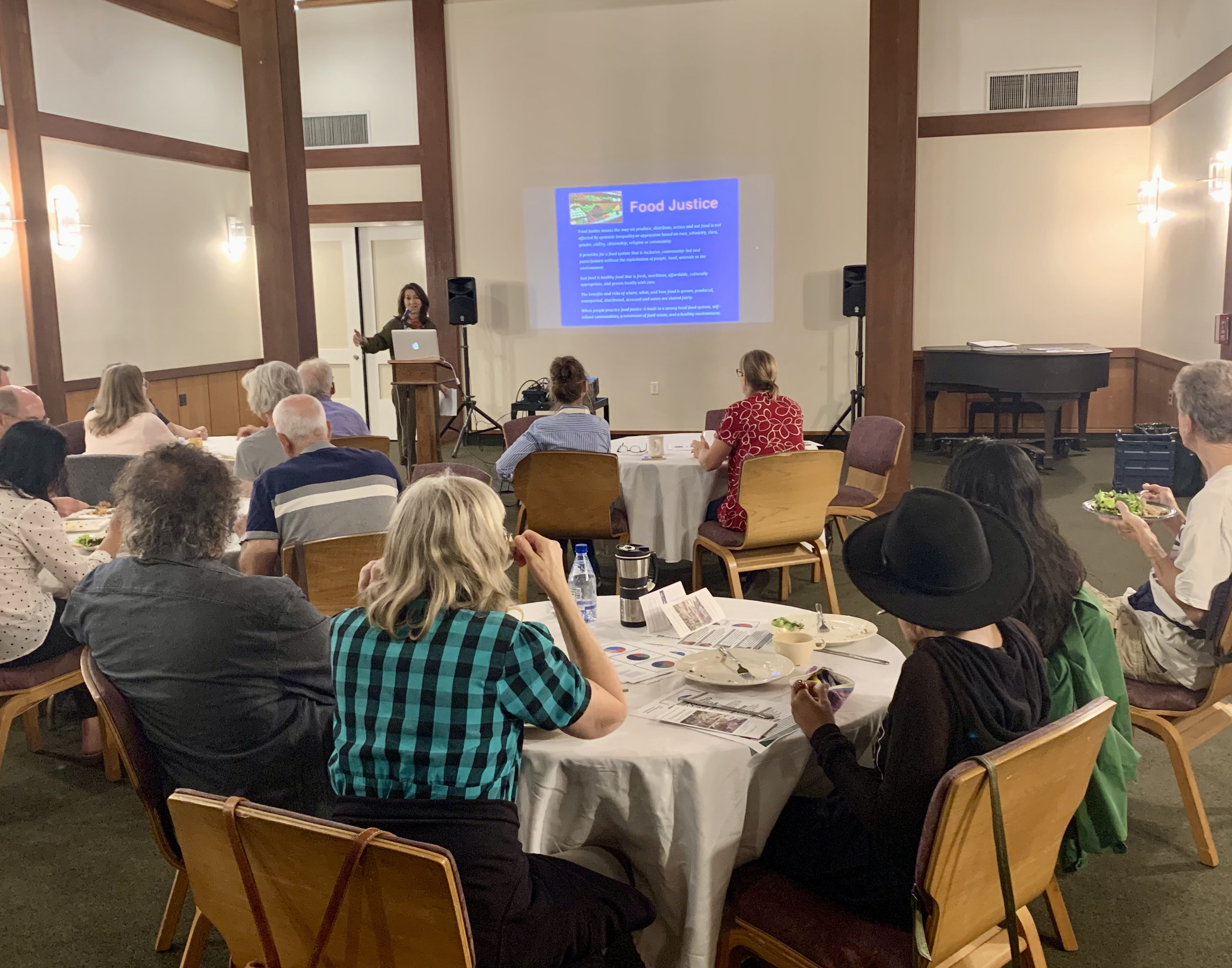
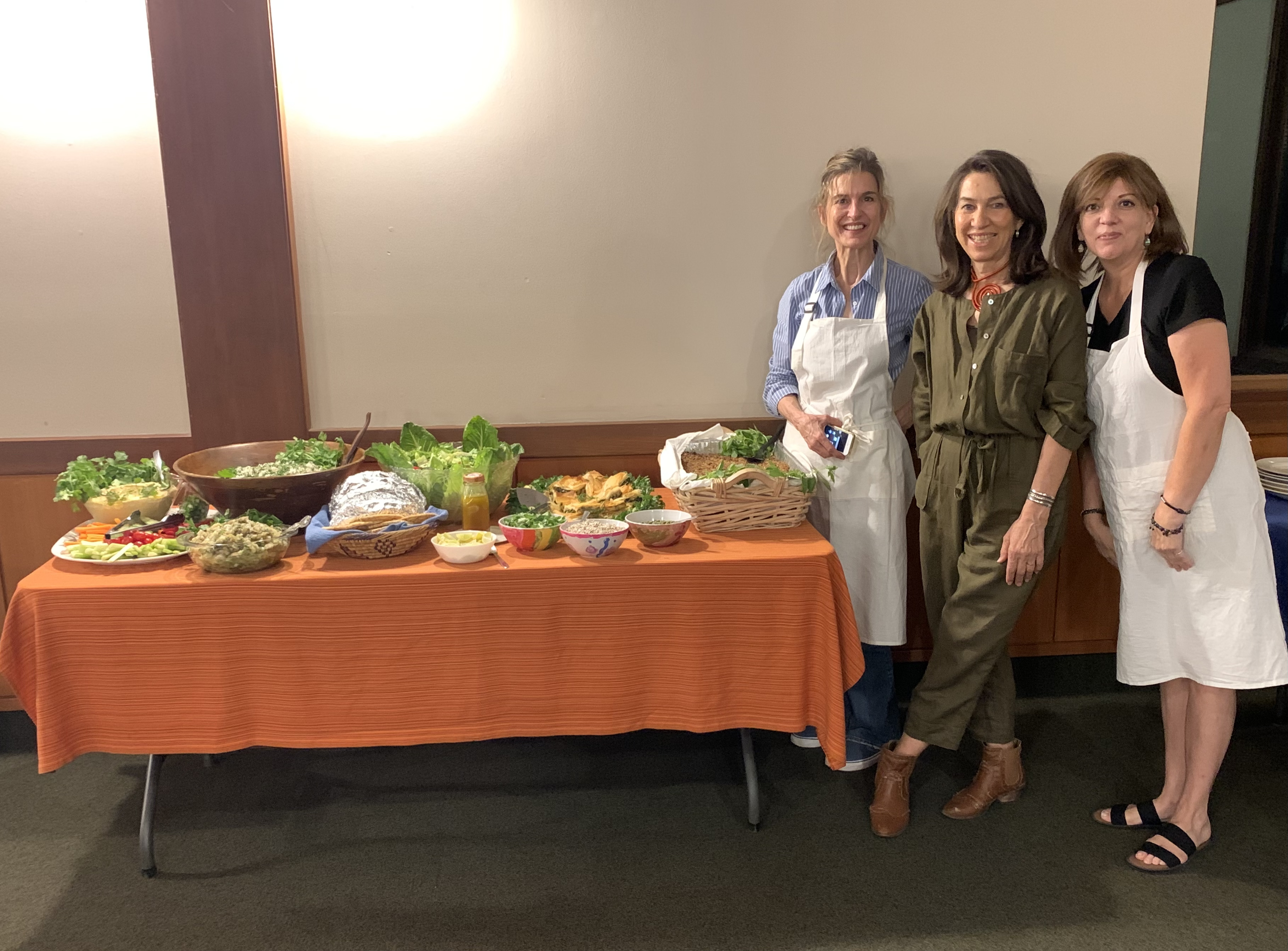
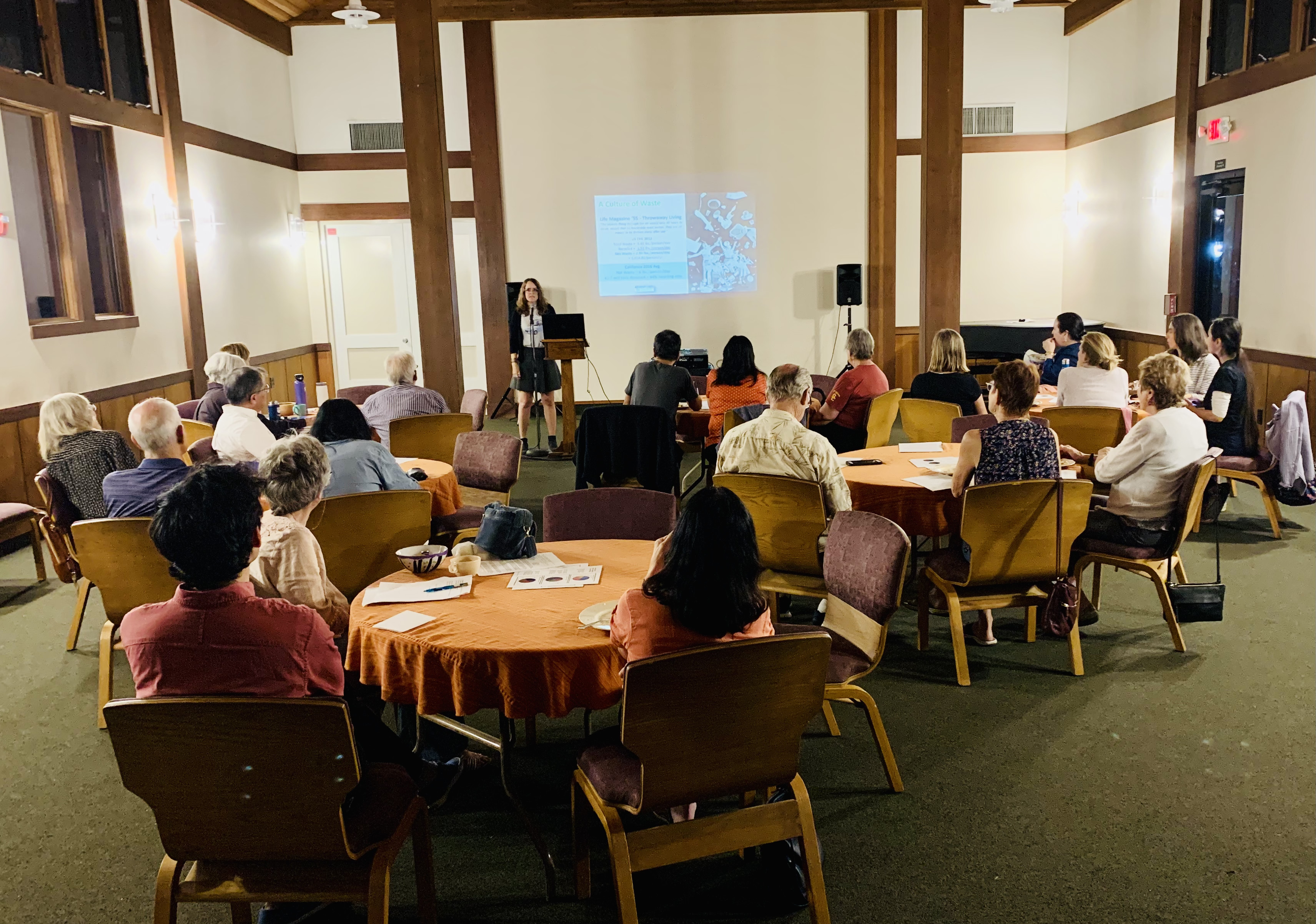
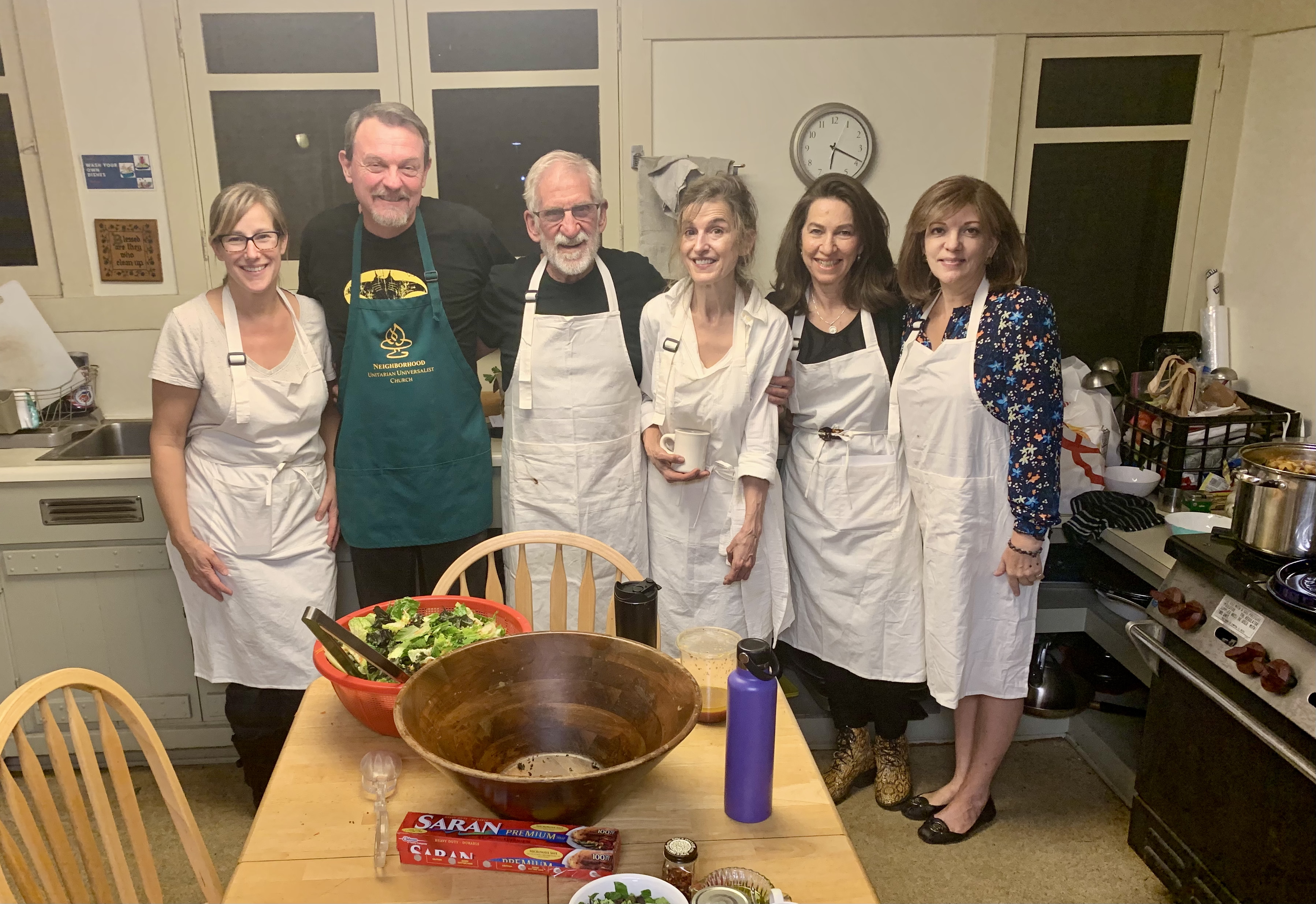
designed by luis sierra campos